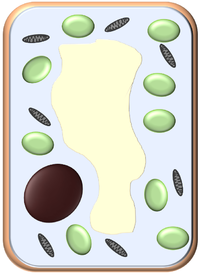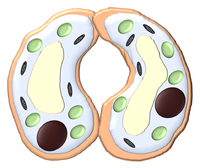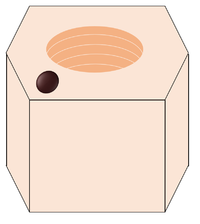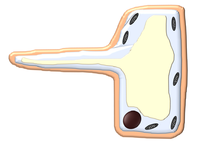Difference between revisions of "Specialised Plant Cell"
| Line 7: | Line 7: | ||
: '''Specialised cells''' make an [[organism]] more efficient than if every cell was the same. | : '''Specialised cells''' make an [[organism]] more efficient than if every cell was the same. | ||
: '''Specialised cells''' has special [[adaptation]]s that make them good at their function. | : '''Specialised cells''' has special [[adaptation]]s that make them good at their function. | ||
| − | : Cells can be '''specialised''' by having more [[mitochondria]] or [[chloroplast]]s than usual | + | : Cells can be '''specialised''' by having more [[mitochondria]] or [[chloroplast]]s than usual or may have an elongated shape. |
These are some '''specialised cells''' in plants that you should know: | These are some '''specialised cells''' in plants that you should know: | ||
*[[Palisade Cell]] | *[[Palisade Cell]] | ||
Revision as of 14:09, 4 November 2018
Key Stage 4
Meaning
Specialised Plant Cells are cells in plants that are adapted for a specific function.
About Specialised Plant Cells
- Multicellular organisms need specialised cells to perform certain functions for that organism.
- Specialised cells make an organism more efficient than if every cell was the same.
- Specialised cells has special adaptations that make them good at their function.
- Cells can be specialised by having more mitochondria or chloroplasts than usual or may have an elongated shape.
These are some specialised cells in plants that you should know:
Examples
| Palisade Cell | Spongy Mesohpyll Cell | Guard Cells |
| Xylem Cell | Root Hair Cell | |




